The Catalyst Killing - [27]
I remembered Patricia’s conclusions from the night before. So I asked if it was possible that this guest might be Falko, as they remembered him.
The caretaker raised his eyebrows, thought about it for a while, and even went in to ask his wife. In the end, however, he reluctantly had to confess that they could not say yes or no to that. There were so many footsteps to remember in the building and it was a long time since they had heard Falko’s, he explained, apologetically.
When I asked for a spare key so the flat could be examined, I was given one straight away. I had no real hope of finding any technical evidence, as the flat looked too clean and tidy for that. But I did harbour a small hope that a fingerprint might help to reveal the identity of this mysterious guest – even, perhaps, of the murderer.
III
There was still a fortnight until the start of the autumn semester, and so it was far easier than I had expected to find my way round the university library. I was told that the section where the literature students usually sat had around forty places. Only one of these was occupied at a quarter past eleven.
Miriam Filtvedt Bentsen, still dressed in blue jeans and a multicoloured sweatshirt, sat in the middle of a deserted landscape of empty chairs like a silent and lonely queen. There was a thick notepad in front of her and around it, an encyclopedia and five French dictionaries.
The sole occupant of the library was reading with such concentration that she did not notice me, even when I was only a few steps away. I stood there for a minute without attracting her attention, before I alerted her to my presence with a half-whispered: ‘Do you perhaps know where I might find Miss Miriam Filtvedt Bentsen?’
If I had expected her to start in surprise, I was disappointed. Miriam Filtvedt Bentsen was obviously of a far more balanced nature than I thought, and what is more, she was familiar with the silence rule. It would take more than a whispering policeman in the library to unnerve her. She looked up, nodded with a quick smile, pointed to the exit and stood up. I obediently followed behind her, taking it as a good sign that, after a moment’s hesitation, she had left the encyclopedia and all five dictionaries on the desk.
Miriam Filtvedt Bentsen felt that it was too early in the day for a longer break, so turned down the offer of lunch in the refectory. I saw it as positive that she then said yes to a coffee and a piece of cake – especially as she ate incredibly slowly and pensively.
My first question was about the size of the windows in the cabin in Valdres. Miriam Filtvedt Bentsen took her time, chewed on a couple of mouthfuls, and then answered that she unfortunately did not dare say for sure. The windows had been small, and were relatively high, so she doubted that it would be possible for a man of Falko Reinhardt’s size to get out that way. But she could not be certain. Whatever the case, the window had been shut from the inside when she went into the bedroom around two o’clock that morning. So if that was how he had escaped, he would have needed Marie’s help, she added, with an inquisitive smile.
I did not say anything to the contrary, but asked instead what she herself had been doing at ten o’clock the night before.
I asked with my heart in my throat, and once again anticipated a strong reaction – which did not happen this time either. Miriam Filtvedt Bentsen looked at me with even greater curiosity and asked if I really suspected her of murder? I tried to defuse the situation by saying that I did not, but that I had to ask her as a matter of routine, for the reports.
She replied that good reporting procedures were important in all organizations, and then added on a more serious note that her alibi was unfortunately not perfect. She had been in a meeting with several other people at the party office from six until eight, but had then carried on working alone until ten, when she caught a bus and a train back to her student flat. And at the moment, she was the only one in her corridor who had returned after the holidays.
In theory, there was nothing to have stopped her from being at Smestad around ten. But she had not been there, she said, and suddenly looked very serious indeed.
I thought to myself that Patricia would hardly be impressed by this alibi. And that I personally was relieved that Miriam had not given a boyfriend as an alibi and that there was still no hint of any boyfriend.
I turned the conversation back to their trip to the cabin, and asked whether she or Kristine Larsen had slept closest to the door. She looked at me, somewhat startled, but replied without hesitation that she had been closest to the window, and Kristine closest to the door. She told me in response to my follow-up question that Kristine Larsen had wanted to sleep with the door ajar the night before the disappearance as well.
My next question felt a bit intrusive. But I trusted Patricia, and so I asked if I was correct in thinking that on the night of Falko Reinhardt’s disappearance, Miriam Filtvedt Bentsen had also been awake, even though she had had her eyes closed.
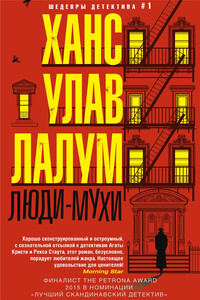
Убит бывший лидер норвежского Сопротивления и бывший член кабинета министров Харальд Олесен. Его тело обнаружено в запертой квартире, следов взлома нет, орудие убийства отсутствует. На звук выстрела к двери Олесена сбежались все соседи, но никого не увидели. Инспектор уголовного розыска Колбьёрн Кристиансен считает, что убийство, скорее всего, совершил кто-то из них. Более того, он полагает, что их показания лживы.
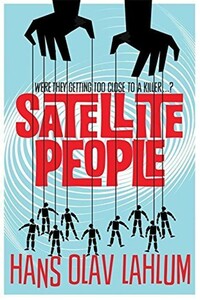
A gripping, evocative, and ingenious mystery which pays homage to Agatha Christie, Satellite People is the second Norwegian mystery in Hans Olav Lahlum's series. Oslo, 1969: When a wealthy man collapses and dies during a dinner party, Norwegian Police Inspector Kolbjorn Kristiansen, known as K2, is left shaken. For the victim, Magdalon Schelderup, a multimillionaire businessman and former resistance fighter, had contacted him only the day before, fearing for his life. It soon becomes clear that every one of Schelderup's 10 dinner guests is a suspect in the case.
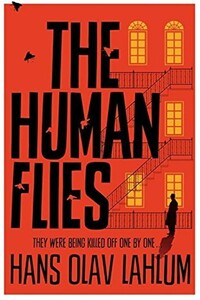
Oslo, 1968: ambitious young detective Inspector Kolbjorn Kristiansen is called to an apartment block, where a man has been found murdered. The victim, Harald Olesen, was a legendary hero of the Resistance during the Nazi occupation, and at first it is difficult to imagine who could have wanted him dead. But as Detective Inspector Kolbjorn Kristiansen (known as K2) begins to investigate, it seems clear that the murderer could only be one of Olesen's fellow tenants in the building. Soon, with the help of Patricia – a brilliant young woman confined to a wheelchair following a terrible accident – K2 will begin to untangle the web of lies surrounding Olesen's neighbors; each of whom, it seems, had their own reasons for wanting Olesen dead.
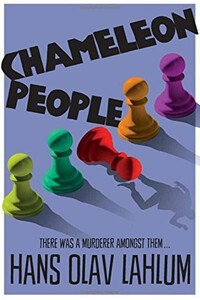
From the international bestselling author, Hans Olav Lahlum, comes Chameleon People, the fourth murder mystery in the K2 and Patricia series.1972. On a cold March morning the weekend peace is broken when a frantic young cyclist rings on Inspector Kolbjorn 'K2' Kristiansen's doorbell, desperate to speak to the detective.Compelled to help, K2 lets the boy inside, only to discover that he is being pursued by K2's colleagues in the Oslo police. A bloody knife is quickly found in the young man's pocket: a knife that matches the stab wounds of a politician murdered just a few streets away.The evidence seems clear-cut, and the arrest couldn't be easier.
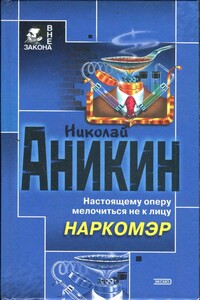
Тупик. Стена. Старый кирпич, обрывки паутины. А присмотреться — вроде следы вокруг. Может, отхожее место здесь, в глухом углу? Так нет, все чисто. Кто же сюда наведывается и зачем? И что охраняет тут охрана? Да вот эту стену и охраняет. Она, как выяснилось, с секретом: время от времени отъезжает в сторону. За ней цех. А в цеху производят под видом лекарства дурь. Полковник Кожемякин все это выведал. Но надо проникнуть внутрь и схватить за руку отравителей, наживающихся на здоровье собственного народа. А это будет потруднее…

«Посмотреть в послезавтра» – остросюжетный роман-триллер Надежды Молчадской, главная изюминка которого – атмосфера таинственности и нарастающая интрига.Девушка по имени Венера впадает в кому при загадочных обстоятельствах. Спецслужбы переправляют ее из закрытого городка Нигдельск в Москву в спецклинику, где известный ученый пытается понять, что явилось причиной ее состояния. Его исследования приводят к неожиданным результатам: он обнаруживает, что их связывает тайна из его прошлого.
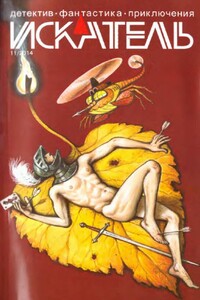
«ИСКАТЕЛЬ» — советский и российский литературный альманах. Издаётся с 1961 года. Публикует фантастические, приключенческие, детективные, военно-патриотические произведения, научно-популярные очерки и статьи. В 1961–1996 годах — литературное приложение к журналу «Вокруг света», с 1996 года — независимое издание.В 1961–1996 годах выходил шесть раз в год, в 1997–2002 годах — ежемесячно; с 2003 года выходит непериодически.Содержание:Анатолий Королев ПОЛИЦЕЙСКИЙ (повесть)Олег Быстров УКРАДИ МОЮ ЖИЗНЬ (окончание) (повесть)Владимир Лебедев ГОСТИ ИЗ НИОТКУДА.
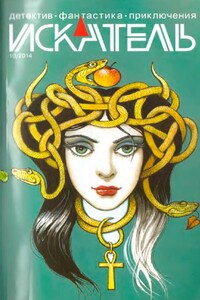
«ИСКАТЕЛЬ» — советский и российский литературный альманах. Издается с 1961 года. Публикует фантастические, приключенческие, детективные, военно-патриотические произведения, научно-популярные очерки и статьи. В 1961–1996 годах — литературное приложение к журналу «Вокруг света», с 1996 года — независимое издание.В 1961–1996 годах выходил шесть раз в год, в 1997–2002 годах — ежемесячно; с 2003 года выходит непериодически.Содержание:Олег Быстров УКРАДИ МОЮ ЖИЗНЬ (повесть);Петр Любестовский КЛЕТКА ДЛЯ НУТРИИ (повесть)
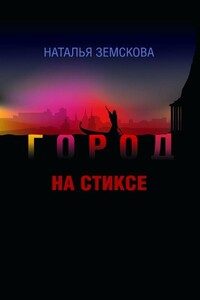
Наталья Земскова — журналист, театральный критик. В 2010 г. в издательстве «Астрель» (Санкт-Петербург) вышел её роман «Детородный возраст», который выдержал несколько переизданий. Остросюжетный роман «Город на Стиксе» — вторая книга писательницы. Молодая героиня, мечтает выйти замуж и уехать из забитого новостройками областного центра. Но вот у неё на глазах оживают тайны и легенды большого губернского города в центре России, судьбы талантливых людей, живущих рядом с нею. Роман «Город на Стиксе» — о выборе художника — провинция или столица? О том, чем рано или поздно приходится расплачиваться современному человеку, не верящему ни в Бога, ни в черта, а только в свой дар — за каждый неверный шаг.

В сборник «Последний идол» вошли произведения Александра Звягинцева разных лет и разных жанров. Они объединены общей темой исторической памяти и личной ответственности человека в схватке со злом, которое порой предстает в самых неожиданных обличиях. Публикуются рассказы из циклов о делах следователей Багринцева и Северина, прокуроров Ольгина и Шип — уже известных читателям по сборнику Звягинцева «Кто-то из вас должен умереть!» (2012). Впервые увидит свет пьеса «Последний идол», а также цикл очерков писателя о событиях вокруг значительных фигур общественной и политической жизни России XIX–XX веков — от Петра Столыпина до Солженицына, от Александра Керенского до Льва Шейнина.